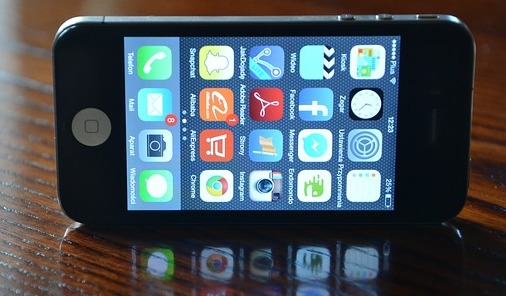Managing your personal finances can seem like drudgery, whether it’s wading through that pile of bills or balancing your checkbook.
Nowadays, however, there are tons of personal finance apps that can help with these chores, with services focused on everything from banking to saving and investing.

Here are 5 popular personal finance apps (in no particular order) to look into if you’re not using them already. And the best part is most of them are free:
1) Simple
Simple is a free online banking service for U.S. residents that doesn’t have any physical branches, although it does provide its own Visa Cards. The app lets you easily keep track of your money, monitor your spending, and use tools such as “Goals” and “Safe-to-Spend” to help manage your budget. Simple doesn’t charge monthly account maintenance fees or overdraft fees. Simple customers can use 55,000 ATMs around the U.S. for free. The money in a Simple account is actually held by its partner bank, The Bancorp Bank (TBBK), which is FDIC-insured.
2) BillGuard
With major data breaches like Target and Home Depot seemingly happening every day, BillGuard has been getting more and more attention. The service allows users to track all their accounts in one place and is designed to protect credit and debit cards from fraud, hackers and unwanted charges. BillGuard flags suspicious charges and also helps users track their spending and budget, among other services. You can monitor an unlimited amount of cards for free.
3) Acorns
Installation: iOS (Android coming soon, the company says)

Acorns is an app designed to put your “spare change” to work investing. The idea is to let individuals invest small amounts, frequently. The app lets users round up purchases to the nearest dollar and invest those quarters, dimes, nickels and pennies. Users can also contribute lump sums if they want. In terms of investments, there are 5 basic diversified portfolios of index-based ETFs, based on risk levels, from conservative to aggressive. In terms of fees, Acorns charges $1 per month, while the investment portfolios charge between 0.25% and 0.5% of assets, annually.
4) Mint
Mint is a free service that aggregates all of your personal finances and accounts into one place, including savings, checking accounts, investments, car payments and home mortgages. Users can track their spending, manage their budget and get reminders to pay bills, with the goal of saving money. Mint also lets you see your credit report and offers tips on boosting your credit score.
5) Robinhood
Installation: The app is reportedly still in testing phase and isn’t expected to go live until 2015, although there are about 500,000 people already on the waiting list.
We added Robinhood to the list because of the buzz surrounding the company even though its app isn’t available yet. The stock broker plans to offer commission-free trading, an idea that could revolutionize personal investing and cut out a huge chunk of fees. Robinhood, which recently closed a $13 million financing round, says its mission is to “create a better way for the next generation to invest.” The company says the app will allow users to transfer money from their bank account to trade stocks and ETFs through Robinhood.
So there you have it. This short list is just a starting point since there are so many helpful personal finance apps out there. Just make sure to do some extra research on the costs, features and security of each app.
As an online investment marketplace, we at Covestor are big fans of technology, transparency and low fees. Our approach is to combine the best features of technology and human advisers to help investors reach their financial goals.
Continue learning: How to keep more from your investments
—




